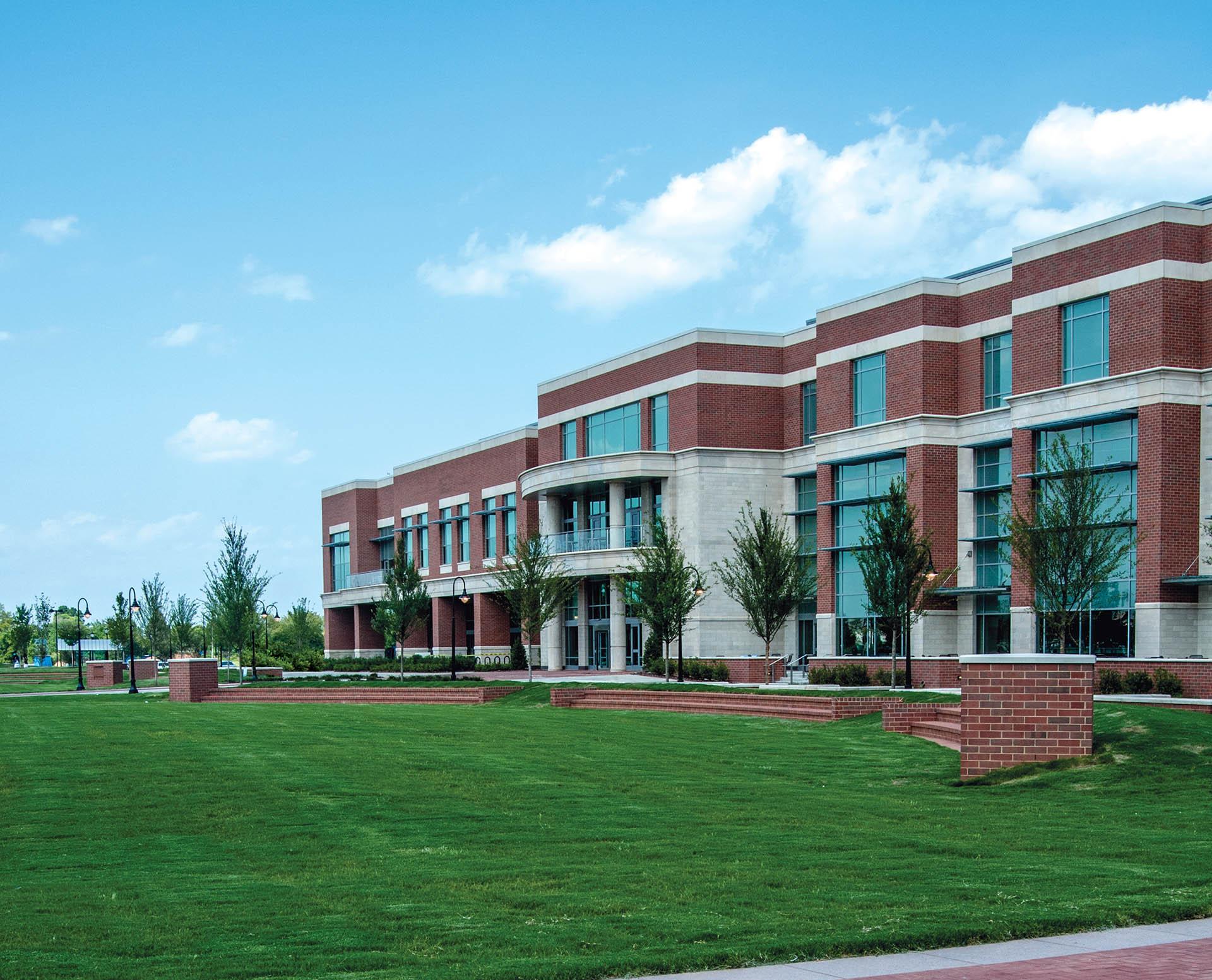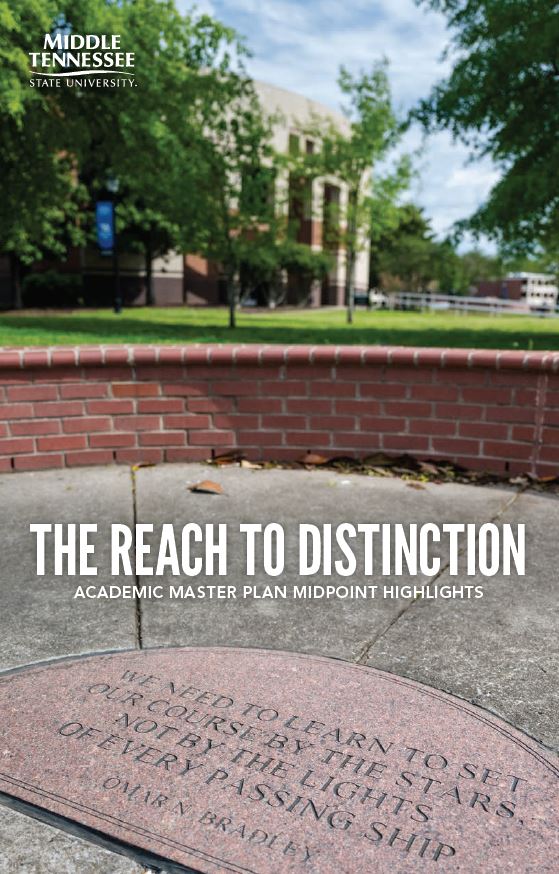Academic Master Plan
Strategic Direction 3
Innovate for effectiveness and efficiency
A fully engaged academic community calls for enhanced communication processes, informational resources, and infrastructure as well as ongoing assessment of the University’s strengths and receptiveness to opportunities that arise in the public and private sectors.
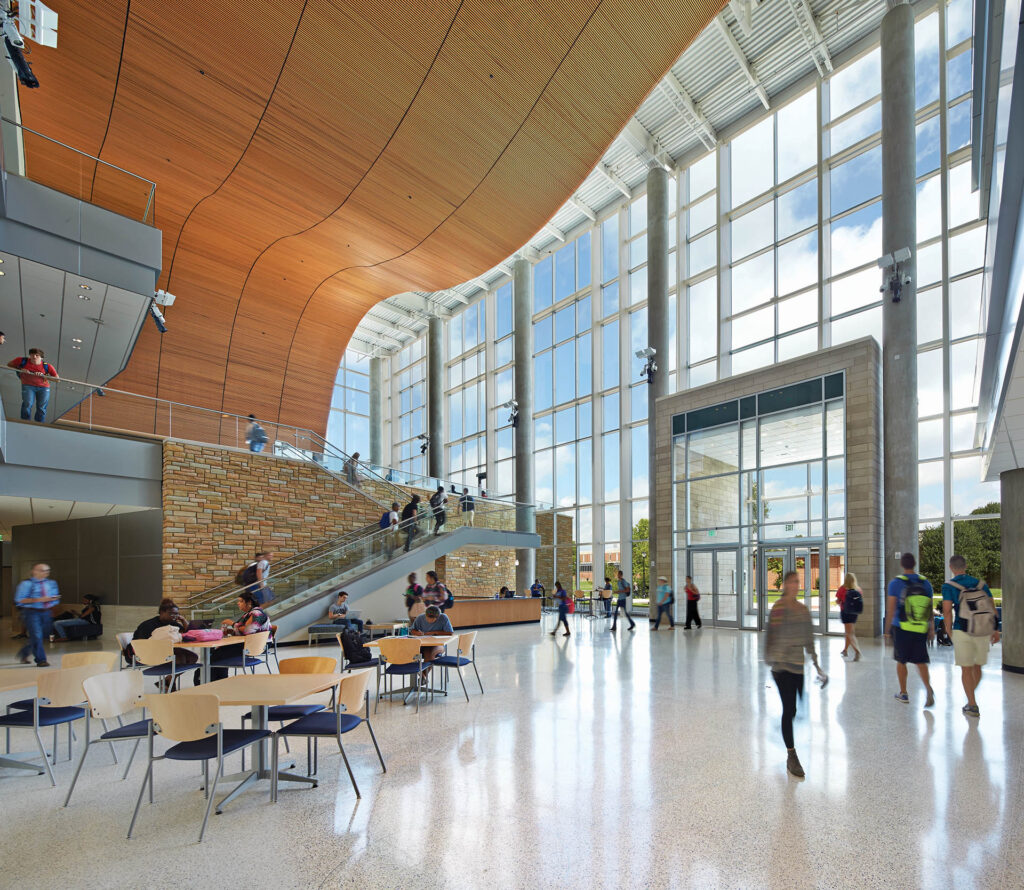
Encourages and supports innovative programs and services that create an academic and student support infrastructure from their entry point into the University through and beyond graduation
Intentional, multi-faceted student success initiatives have been a hallmark of the University since our first Quest for Student Success began in 2013. Academic support services such as supplemental instruction and tutoring continue to grow in the number of courses and students served as well as impact on student achievement. Scholars Academy, an intensive two-week bridge program for entering freshmen, was joined in 2019 by the one-week Student Transition and Academic Readiness (STAR) program offering leadership training, service learning, and team building opportunities as well as a jump start on the college experience.
All degree programs and lifelong learning depend on a firm foundation of core knowledge and skills. Faculty across the University are engaged in a systematic redesign of our general education program to create a 21st century curriculum guided by eight core values essential for learning across and beyond the undergraduate curriculum.

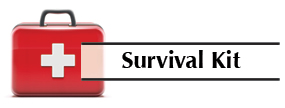
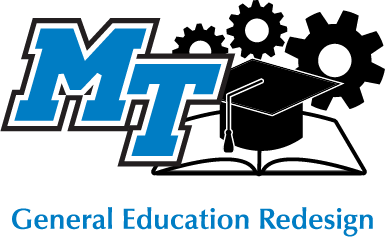
MTSU faculty and leadership’s responsiveness to changing business and industry opportunities has created new opportunities for students who are prepared to succeed professionally through new academic programs and research opportunities. The first students in Applied Leadership intensive programs developed for Bridgestone Americas received their certificates in 2017. In 2018, industry partner Siemens donated $278 million in computer-aided design software to the fast-growing Mechatronics Engineering program. A Tourism and Hospitality Management major, established in 2019, matches University faculty expertise and student talent to the region’s dynamic tourism industry from parks to hotels. Collaboration between Computer Science, Mathematical Sciences, and Information Systems departments in the Data Science Institute led to the creation of an undergraduate degree and a graduate certificate. Data Science faculty and students use data to solve real-world problems for companies, non-profit organizations, and communities, such a “data dive” for Second Harvest Food Bank.
McGuire True Blue Educational Partnership and Noblitt True Blue Educational Partnership launched.
MTSU’s BERC continues, in partnership with the Tennessee Advisory Commission on Intergovernmental Relations, to provide timely economic data and analysis to state businesses; see https://tacir.mtsu.edu/.
- MTSU, McGuire Management Group form True Blue Educational Partnership [+VIDEO]
- MTSU, Chick-fil-A cook up tuition partnership to help local restaurant workers [+ VIDEO]
Transparency and accountability are core values and practices for MTSU as a public University. For example, the Office of Compliance and Risk Management monitors how the University follows state law when providing access to its records while also protecting students’ rights to privacy as required by federal law. In 2018, the Office of Institutional Effectiveness, Planning, and Research began using PowerBI dashboards to share enrollment, retention, and graduation data with on- and off-campus stakeholders. Accountability and oversight are ensured by reports to the MTSU Board of Trustees established under the state’s FOCUS act in 2016, the Tennessee Higher Education Commission. and institutional and specialized accreditation agencies. MTSU’s institutional accreditation was reaffirmed by the Southern Association of Colleges and Schools Commission on Colleges in 2016.
The Business and Economic Research Center published 2022 MTSU Economic Impact study showing the University’s total 2021 impact on Tennessee’s economy: 11,494 jobs across Tennessee; over $616.8 million in wages and salaries; $1.428 billion in total economic activity (business revenue); more than $143 million in local, state, and federal taxes.
Campus Life events page brings together all aspects of co-curricular and social life for students
The University has deployed new software to facilitate communication and efficiency. Faculty and academic administrators use Curriculog to propose, revise, and review courses and programs. Advisors, students, faculty, and Records Office staff use Navigate and DegreeWorks to share real-time information about program requirements and degree completion. Campus Labs software helps academic and administrative units monitor their institutional effectiveness while dynamic forms and electronic workflow have sped up many academic, business, and human resources processes.
Revised procedures have increased efficiencies in the MT One Stop, resulting in a decrease of average wait times for students seeking financial aid and enrollment services from just under 11 minutes in 2015 to an average wait of just over 2 minutes in 2019-2020. Email inquiries to the MT One Stop are responded to within 24 hours.
Financial Aid and Enrollment Technical Services serve on a TBR task force to create an automated system connecting Banner and D2L.
The James E. Walker Library is a major hub of university life. The numerical equivalent of the entire student body comes through its doors every three to four days to access information resources, individual and collaborative study spaces, technology services, and the MakerSpace. Its 2015-2020 strategic plan dedicated the Library to advancing the Academic Master Plan’s strategic directions through initiatives such as information literacy programming, digital scholarship, and a widening array of electronic journals, books, media, and databases that promote academic engagement and community on and off-campus.
MTSU’s Campus Master Plan brings new enhancements to the physical infrastructure each year, from rotaries that move traffic more efficiently through major intersections to student parking garages to building improvements. Renovations to the Wiser-Patten and Davis Science buildings, completed in 2016, completed one end of the science innovation corridor that stretches past the 2014 Science Building toward the Concrete and Construction Management building. The College of Behavioral and Health Sciences moved into its own cutting-edge building in Summer 2020.
One of the most visible recent efforts to create an inviting campus landscape has been the renovation of Middle Tennessee Boulevard. This $18.2 million project, funded by the federal government, the City of Murfreesboro, and MTSU, built handsome entrances to campus and enhanced landscaping along the major roadway shared by the University and Murfreesboro neighbors.
In 2016, College Choice named MTSU as one of the “Top 50 Safest Large Universities in the US.” The University’s commitment to student safety has continued with the installation of additional campus lighting and emergency call boxes. To further protect and empower students, the Power of One initiative seeks to end gender-based violence and increase students’ confidence to speak up when they see a lack of inclusion. This collaborative effort between multiple units in Student Affairs and student organizations, the University police department, the Title IX Coordinator’s office, and the community’s Domestic Violence and Sexual Assault Center, is funded by a $300,000 federal grant secured with assistance from the Office of Research and Sponsored Programs. In 2019, the MTSU Police Department earned accreditation by the Commission on Accreditation for Law Enforcement Agencies, “the gold standard in public safety.”
Beginning Fall 2020, Parking Services gated three (3) parking lots and close them between 4:30pm and 6:30pm for evening faculty/staff permitted decal entry only. All other non-reserved spaces will then be opened to student and public event access at 5:30pm. Parking Services projects that this change will create available parking for over 90% of our evening public events.
Updates
Midpoint Highlights Publication:
2022-23 Implementation Overview
